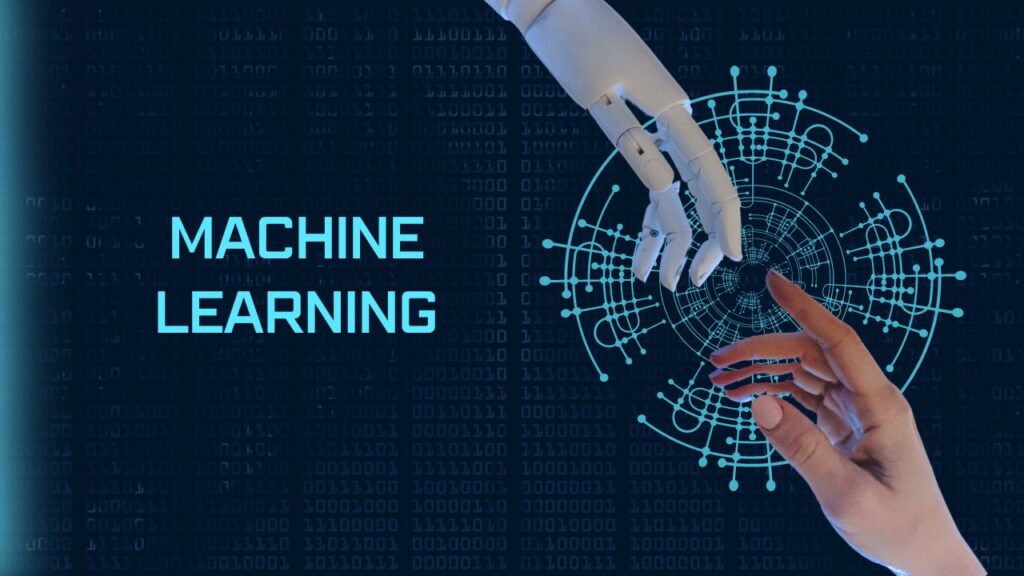Level up your business with US.
- Home
- AI-Driven Diagnostics: How ML is Enhancing Early Disease Detection
AI-Driven Diagnostics: How ML is Enhancing Early Disease Detection
May 26, 2025 - Blog
AI-Driven Diagnostics: How ML is Enhancing Early Disease Detection
The ability to detect diseases early—sometimes before symptoms even appear—has long been the holy grail of healthcare. Thanks to AI-driven diagnostics, particularly machine learning (ML), this vision is becoming a reality. Today, artificial intelligence is not just assisting doctors but actually identifying patterns in complex data that humans often miss, leading to earlier, more accurate diagnoses.
From spotting cancer in radiology scans to predicting heart disease from ECG data, machine learning is revolutionizing how we approach medical diagnostics. And for healthcare providers, startups, and research institutions, collaborating with a reliable tech partner is essential to bring these AI solutions to life. This is where Code Driven Labs steps in.

The Need for Early Diagnosis
Many diseases progress silently in their early stages. By the time symptoms emerge, treatment is often more invasive, expensive, or less effective. Traditional diagnostic methods, while useful, have limitations:
-
Human error and interpretation bias
-
Time-consuming manual reviews of imaging and lab data
-
Lack of personalization based on a patient’s unique genetic or behavioral profile
AI bridges these gaps by analyzing massive amounts of medical data at lightning speed and recognizing patterns too subtle for the human eye.
How ML Enhances Early Disease Detection
1. Medical Imaging Analysis
AI-powered tools can read X-rays, MRIs, CT scans, and mammograms with remarkable precision. ML algorithms trained on thousands (or millions) of annotated images can:
-
Detect lung nodules in chest X-rays
-
Identify tumors in brain scans
-
Spot early signs of diabetic retinopathy or osteoporosis
For example, Google’s DeepMind developed an AI model that outperforms radiologists in detecting breast cancer in screening mammograms.
2. Predictive Risk Models
Machine learning uses patient history, lab results, genetic data, and wearable sensor inputs to predict the likelihood of developing a disease before symptoms occur.
ML models can now:
-
Forecast the onset of sepsis hours in advance
-
Identify patients at risk of heart disease based on ECG patterns and lifestyle data
-
Predict relapse in mental health or autoimmune conditions
This gives clinicians a chance to intervene proactively, not reactively.
3. Natural Language Processing (NLP) in Clinical Notes
Most healthcare records contain unstructured text—doctor’s notes, discharge summaries, and pathology reports. ML-based NLP models can extract insights from this data to:
-
Spot missed diagnostic cues
-
Track disease progression
-
Suggest additional tests or referrals
It enhances decision-making without requiring major changes in how doctors document care.
4. Genomic and Molecular Data Analysis
AI algorithms are being used in personalized medicine, analyzing DNA sequences to predict the risk of hereditary diseases or identify the best treatment for cancers based on their genetic markers.
This level of precision was unthinkable a decade ago—but today, ML is turning genomic insights into clinical practice.
Benefits of AI-Driven Diagnostics
-
Faster diagnosis with fewer false positives/negatives
-
Reduced workload for radiologists and clinicians
-
Lower healthcare costs due to timely interventions
-
Personalized care with data-backed decisions
-
Improved patient outcomes and trust in the system
However, implementing these technologies is not plug-and-play—it requires deep technical knowledge, regulatory compliance, and integration with existing systems.

How Code Driven Labs Helps Healthcare Innovators Adopt AI Diagnostics
Code Driven Labs is at the forefront of AI transformation in healthcare. We help organizations—whether hospitals, medtech startups, or research institutions—design, build, and deploy AI-based diagnostic systems with real-world impact.
Here’s how we make it happen:
1. AI Strategy & Use-Case Identification
We work closely with your medical and IT teams to understand pain points, available data, and compliance needs. Then we define the best use cases for AI—whether it’s image analysis, predictive modeling, or NLP from patient notes.
Outcome: A clear, actionable roadmap for AI adoption.
2. Custom ML Model Development
Our data scientists build and train machine learning models tailored to your clinical environment. We use Python, TensorFlow, PyTorch, and other industry-standard tools to ensure:
-
High accuracy and precision
-
Transparent model explainability (using SHAP, LIME, etc.)
-
Compliance with HIPAA and medical device standards
We also fine-tune open-source models like BioBERT or ResNet when appropriate.
3. Data Integration & Privacy Handling
We integrate the AI engine with your EHR systems, PACS, or LIS, ensuring seamless workflow support. Our engineers prioritize data security, using encryption, anonymization, and secure APIs.
Privacy and compliance are non-negotiable—we follow all major guidelines, from GDPR to FDA regulations.
4. Testing, Validation & Pilot Deployment
Before full rollout, we rigorously test your AI solution with real-world clinical data and validate it against existing gold standards. We can even run pilot programs within select departments or labs.
5. Ongoing Support and Scalability
Once deployed, we monitor model performance, retrain based on new data, and optimize for speed and scalability. We also provide user training and support for medical staff to ensure adoption.
Final Thoughts
AI and machine learning are not just hype—they are redefining how we detect, understand, and treat diseases. From early cancer detection to personalized medicine, AI-driven diagnostics have the potential to save lives and reduce costs.
But success depends on choosing the right partner—one who understands both the technical and clinical realities of your business.
With Code Driven Labs, you don’t just get an AI solution—you get an end-to-end innovation partner who’s committed to responsible, impactful, and scalable healthcare technology.
